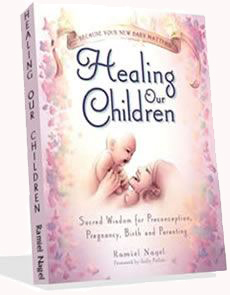 To have good health, we want to eat a natural diet, one that is consistent with what our body was meant to eat. Following Dr. Weston Price’s recommendations is a great way to start.
To have good health, we want to eat a natural diet, one that is consistent with what our body was meant to eat. Following Dr. Weston Price’s recommendations is a great way to start.
But sometimes people stray from the path of what leads to good health. One of the paths to health disaster is trusting in a totally plant-based diet for all one’s minerals.
This may sound like sheer heresy to many people. Isn’t a plant-based diet what we all need? It’s what everyone says is the best. Shouldn’t we all eat a vegetarian diet? Doesn’t everyone know that red meat is equivalent to death?
One of the major problems with a totally plant-based diet is the great possibility of a zinc deficiency. This can result for three reasons:
1) The soil is known to be deficient in zinc in many parts of the world, including China, India, Australia and Turkey.
2) The addition of fertilizer to the soil interferes with the plant’s uptake of zinc from the soil.
3) If zinc is adequate in the soil, absorption of zinc is not guaranteed in the body because some plants contain phytates, which prevent zinc absorption.
You Can’t Absorb Zinc If You Have Other Deficiencies
And like many nutrients, zinc depends on the presence of other nutrients to be absorbed, such as vitamin A and vitamin D. Also, there’s a balance of other minerals that has to occur in the body before zinc levels can attain their normal status. High copper and iron levels interfere with absorption of zinc.
The best diet for zinc absorption is one that includes eating meats. The meats increase the zinc absorption from the diet naturally without any inhibiting factors. Foods high in zinc include pumpkin seeds, black beans, dark meat of chicken and turkey, liver, beef, lamb, peanuts, cashews, almonds and sesame seeds. Although seeds and grains contain good amounts of zinc, they also contain phytates, which inhibit zinc absorption.
What Happens in a Zinc Deficiency?
Zinc deficiency is still prevalent in developing countries such as India. This deficiency contributes to many of the deaths from infectious disease that affect children and adults in these countries because of the effect it has on their immunity and on the GI tract. Zinc deficiency causes a decreased resistance to infections and also diarrhea.
But that’s not all it causes. A deficiency causes these symptoms as well:
• poor or declining vision
• loss of the senses of taste and smell
• acne
• anorexia, or loss of the desire to eat
• poor memory
• hair loss
• failure of the body to develop healthy reproductive organs
Zinc deficiency is also correlated with some different diseases such as macular degeneration, prostate disorders, blood sugar imbalances and immune disorders.
The best way to find out your zinc status is a blood test. It could change your life!

















